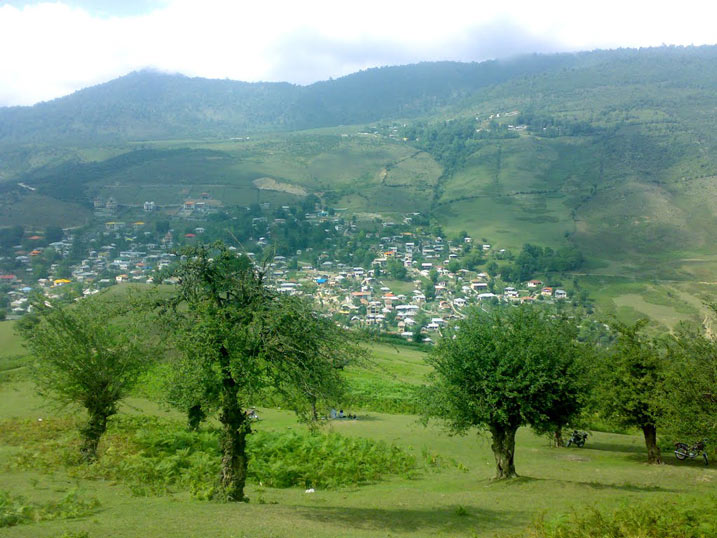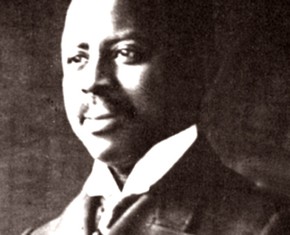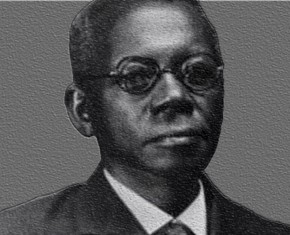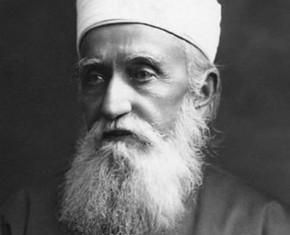The views expressed in our content reflect individual perspectives and do not represent the authoritative views of the Baha'i Faith.
Baha’u’llah, the prophet and founder of the Baha’i Faith, made history in the 19th Century when he manumitted his father’s slaves; and then decreed freedom for all slaves. In the emerging details of that profound action, we can see the foundational Baha’i principle of the oneness of humanity appear.
When Baha’u’llah liberated the slaves he inherited from his father in 1839, one remained–Mubarak, Baha’u’llah’s sister’s slave. That fact makes all the difference, explaining why this slave was not freed in 1839 with those Baha’u’llah inherited directly from his father.
Independent scholar, Dr. Moojan Momen, one of the most prolific and widely cited Baha’i scholars today, describes the liberation of Mubarak:
Briefly Mubarak and his Georgian wife Shirin were sent to Mazandaran to be in the service of Baha’u’llah’s sister. When the attempt on the life of the Shah occurred in 1852, this couple turned up in Tehran. Mirza Musa Kalim reproached them for having left Baha’u’llah’s sister all alone in Mazandaran. At this Mubarak went out into the street and started shouting: “These Babis are trying to take my Muslim wife away from me by force!” Kalim paid no attention to this but pulled him back into the house and forced him to return to Mazandaran.
Some time later Mubarak appeared in Baghdad and asked Baha’u’llah for his freedom. As a result of this request Baha’u’llah revealed the following prayer (paraphrased in Persian):
O God! One slave is asking another slave for freedom. But, O my Lord! my desire is that day by day I may become more and more [Your] slave. And You know that at the beginning of (this) Cause, I set him free.
So it would appear that Baha’u’llah set this slave — and probably his other slaves — free at the start of the Babi revelation, i.e. 1844. [Here Dr. Momen relies on Asadullah Fadil Mazandarani, Tārīkh-i Ẓuhūr al-Ḥaqq, vol. 4 (Hofheim: Bahá’í Verlag, 2004), p. 59 (section: Kayfiyat-i Giriftari-yi Jamal Abha).]
Alternatively, the Persian expression, badv-i amr—“beginning of (this) Cause—could mean the time of Baha’u’llah’s decision to set slaves free in 1839.
Dr. Armin Eschraghi, a Baha’i scholar who concurs with Dr. Momen, provides a few more details in this alternative translation:
O God! One slave is asking another slave for freedom. O my Lord! It is My own desire that day by day I may become more and more [Your] slave. But as for him, You well know that I already set him free at the beginning of this Cause.
The reader may read aloud the original paraphrased Persian prayer, which is transliterated (represented in English letters) as follows:
ilāḥī, mamlūkī az mamlūkī dar-khwāst-i āzādī mīnamāyad. Valī, khudāvandā man mīkhwāham kih yawm-an fa-yawm-an mamlūk-tar gardam. Va tu āgāhi kih man az badv-i amr viy rā āzād kardih būdam.
Dr. Eschraghi further states that Kalim had confined—literally, “arrested”—Mubarak for a period of time. The Persian text says that “he returned to Mazandaran with his wife and stayed in her [Baha’u’llah’s sister’s] service. Later he hurried to Baghdad to seek his freedom from Baha’u’llah–yet Baha’u’llah remarks that he had previously set Mubarak free!
The Tablet to Mubarak, technically, is not a decree of manumission. But, since it references Baha’u’llah’s liberation of Mubarak, it provides additional evidence for the tentative hypothesis: the Tablet to Mubarak that Dr. Momen and Dr. Eschraghi describe above appears to be a different Tablet than the one rediscovered by Dr. Saiedi—and released as an official translation by the Universal House of Justice (see Part 18 of this series). Why? Because no reference whatsoever to the phrase “the beginning of this Cause” exists in the Tablet translated under the auspices of the Universal House of Justice.
In reconstructing the events based upon the available evidence, it appears that Baha’u’llah, upon inheriting his father’s slaves, set them free in 1839 (the year of his father’s passing). But, evidently, before doing so, some of these slaves were assigned to the service of other siblings, including Mubarak. Then, sometime after 1853, Mubarak went to Baghdad and asked Baha’u’llah to set him free.
To review, we now know that Baha’u’llah’s intention to liberate other slaves dates back to “the beginning of this Cause” (circa 1844, or perhaps even earlier in 1839). This information comes from the conclusions reached by Drs. Momen and Eschraghi. We also know that Baha’u’llah then liberated his sister’s slave, Mubarak, probably at some point in the 1850s, according to the Research Department at the Baha’i World Centre.
And of course we know that in 1873, Baha’u’llah, prophet-founder of the Baha’i Faith, abolished slavery, in principle, once and for all time, with this decree, i.e. Baha’u’llah’s “Universal Emancipation Proclamation”:
It is forbidden you to trade in slaves, be they men or women. It is not for him who is himself a servant to buy another of God’s servants, and this hath been prohibited in His Holy Tablet. Thus, by His mercy, hath the commandment been recorded by the Pen of justice. Let no man exalt himself above another; all are but bondslaves before the Lord, and all exemplify the truth that there is none other God but Him. He, verily, is the All-Wise, Whose wisdom encompasseth all things. – Baha’u’llah, The Most Holy Book, p. 45.
Verily, before the one true God, they who are the rulers and lords of men and they that are their subjects and vassals are equal and the same. The ranks of all men are dependent on their potential and capacity. Witness unto this truth are the words, “In Truth, they are most honored before God who are most righteous.” – Baha’u’llah, qtd. in Black Pearls, p. 39.
[Thanks to Moojan Momen, Nader Saiedi, Armin Eschraghi, Nahzy Abadi Buck, Mazda Karimi, Hajir Moghaddam and Siyamak Zabihi-Moghaddam, who have offered helpful comments in previous drafts of this article.]

















Comments
Sign in or create an account
Continue with Googleor